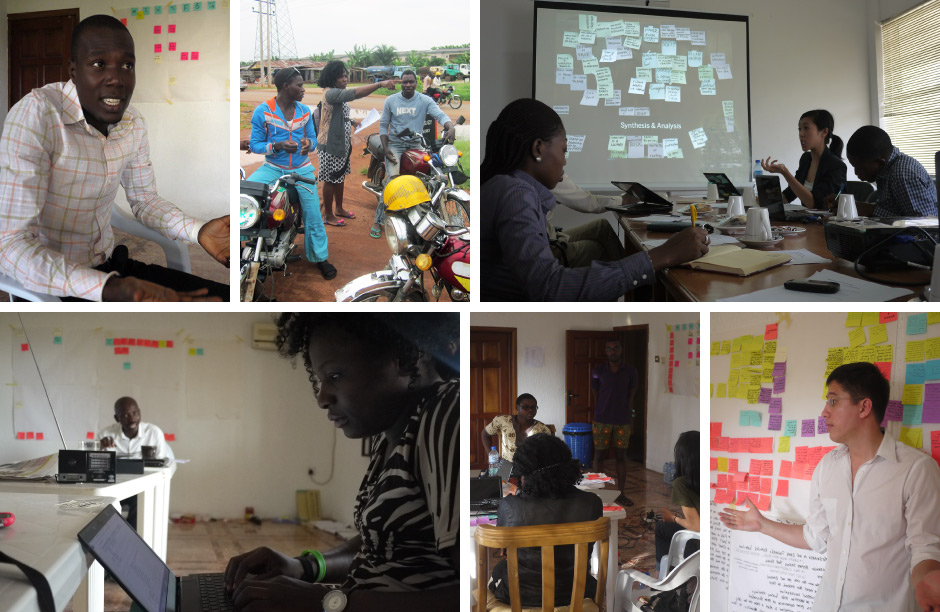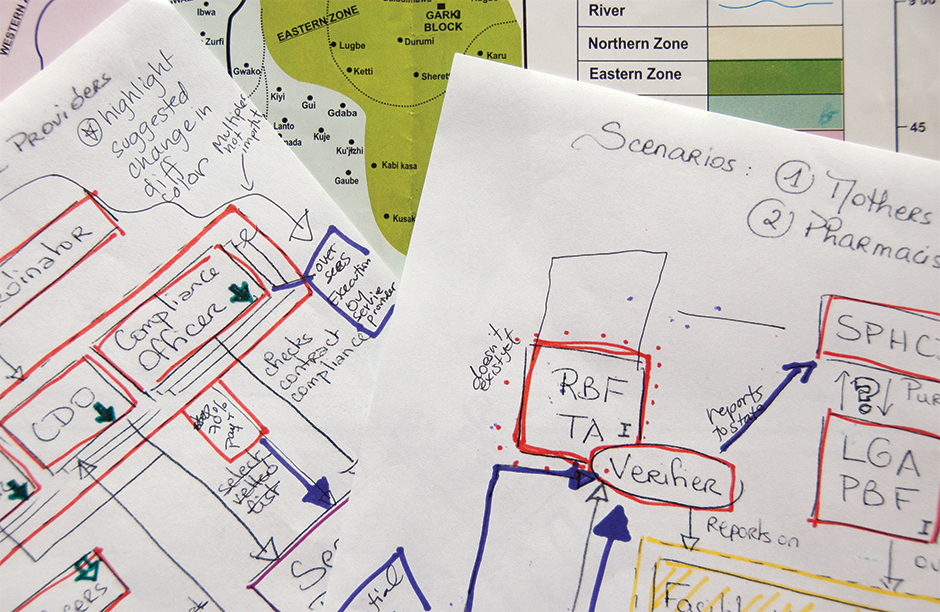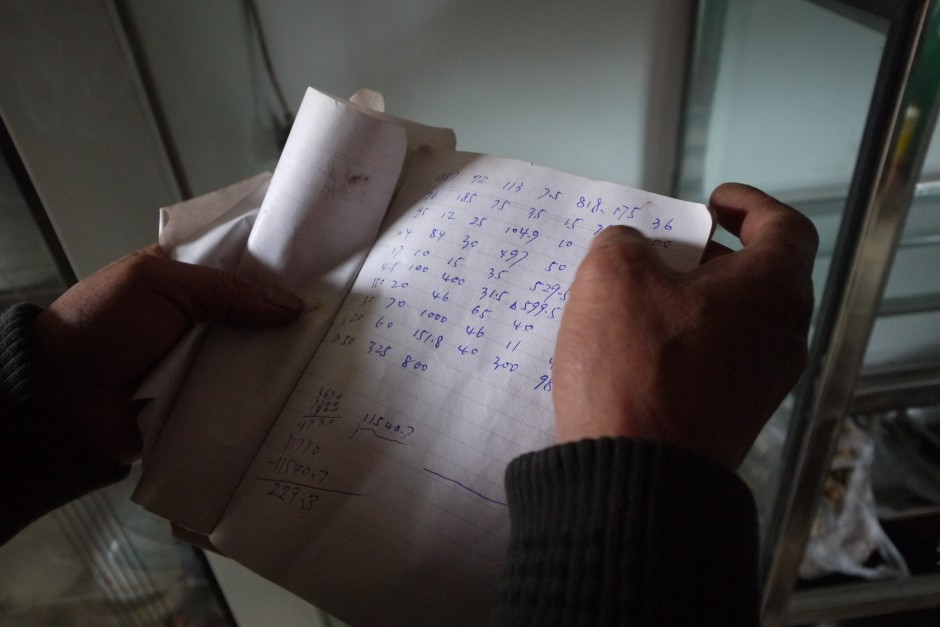Global Development
A Day in the Life of Reboot Nigeria
It’s 8:00am, and we’re up and running. Reboot Nigeria rises early.
We have a big day ahead of us. We’re working out of our office in Benin City in the Niger Delta. This week, we’re examining public works projects, working on an education-focused radio program we helped launch, training government officials on design research, and prototyping improvements to an elections monitoring platform. It’s a sizeable plate.
But first on the agenda this morning is research. Our focus: roads.
Specifically, we’re trying to understand the process through which public works projects go from inception to execution, and we’re doing so through the prism of road construction. Edo, one of the states we’re working in, has undergone a transformation in the recent years—the current Governor has made road building a key priority. Though only 10 to 15 percent of Nigerian roads are paved, the present … Read More »
Crowdfunding for Development
In recent years, crowdfunding models have offered disruptive examples of collective action problem-solving.
Crowdfunded micro-lending initiatives like Kiva are enabling people all over the world to support entrepreneurs in emerging contexts. In only two years, the crowdfunding platform Kickstarter has helped hundreds of thousands of creators secure the capital they need to bring new ideas, products, services, and stories to the world.
And there are many more mission-driven crowdfunding platforms—Global Giving, Crowdrise, Donors Choose, Raise 5, and Catapult, to name a few.
How could development organizations leverage the emergence of these new models to collectively finance and advance human development outcomes worldwide?
This is a question a cross-divisional team at the World Bank raised among staff as part of this year’s annual Sustainable Development Forum. With Reboot’s support, this team convened a “Crowdfunding for Development” brainstorming workshop to help identify answers … Read More »
Toward a 21st Century Social Contract
In a small office on East 20th Street in New York City, Reboot is working toward a social contract for the 21st century. We’re driven in this work, because the rules of the game are changing. An emboldened global citizenry, empowered by increased connectivity, is demanding more from its leadership: justice, accountability, a shot at a decent life, and a livelihood with dignity.
And, frankly, because we can do better.
Too many of the world’s people live in difficult, debilitating circumstances. Some factors are beyond our control. We cannot prevent the occurrence of droughts, floods, and earthquakes. Luck of the draw dictates whether we are born into a rich country or a poor one, with fertile soil or famine, with clean drinking water or waterborne diseases.
But many disasters are not random acts of fate. They are man-made, the products of bad decisions … Read More »
Informalizing Financial Services
Recently, Fidelity Bank announced that they are using susu collectors in Ghana to improve service delivery and reach, and equipping them with point of sale terminals for real-time reconciliation. This is a prime example of how a formal financial service provider can tap into informal networks.
Susu collectors are one of the oldest financial services in Africa. They are traditionally trustworthy people who visit clients in their communities to collect very small deposits over the course of a month. At the end of the month, the susu collector returns the accumulated savings to the client but keeps one day’s savings as commission. Susu collectors occasionally provide advances to their clients. The formal financial sector in Ghana became interested in susu collectors years ago, and private-sector banks such as Ghana Commercial Bank and Barclays used susu collectors to mobilize savings and … Read More »
Putting Social Protection to Work: Complex Services in South Africa
From time to time, we here like to feature the voices of people we think are doing important and interesting work on topics of interest to us. Today’s piece explores what is known as “social protection” or “cash transfers” - a method for improving life outcomes for low-income people - and it focuses on implementations in South Africa. Our author is Kevin Donovan, currently a Fulbright Fellow at the University of Cape Town, and a good friend of the Reboot family.
* * *
Consider Lindiwe, a middle-aged South African grandmother, responsible for both her daughter and grandson. Every month, she faces a steep struggle to buy basic supplies, let alone pay for school uniforms or save for special occasions. Like more than ten million South Africans, though, Lindiwe partakes in a monthly ritual. Queuing at community centers and banks around … Read More »







